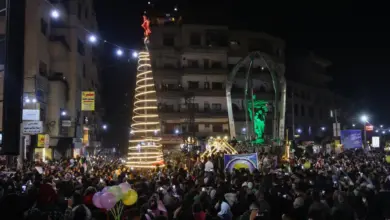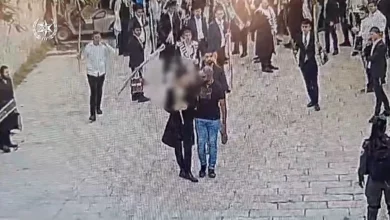With a mix of grief and apathy, Egypt’s online social media communities responded to the news of Pope Shenouda of Alexandria’s death, reflecting both the Pope’s multi-layered personality and multi-faceted role as leader of the Coptic community.
Shenouda, who died at 89 after a long struggle with kidney failure, ran the Egyptian Coptic church and community for the past four decades, assuming both a religious and political role.
The contention erupted on online social media when some users suggested that Shenouda doesn’t deserve to be mourned given his political loyalty to former President Hosni Mubarak’s regime. Ever since he was released from a political exile in 1984, Shenouda had not criticized Mubarak’s regime.
When the uprising broke out in January 2011, the church advised Copts not to take part in the protests. And throughout the on-going transition, the church has also toed the line of the ruling military council, even following the death of 27 people last October when soldiers forcibly ended a mostly Coptic march to the Maspero state media building.
“To all those who consider the pope a great man of religion and a symbol of Christianity: The great man of religion doesn’t stand still before injustice and before the killing of innocents. Is this not the message of Christianity and all religions?” a Facebook user wrote, to entertain a long series of reactions that include both in agreement and disagreement.
“If we want to talk about him as man of religion, in the priestly sense of the word, then we will definitely speak differently about the man of politics,” responded another user.
On Twitter, a user wrote, “I won’t forget that Pope Shenouda refused normalization and banned Christians from pilgrimage in Jerusalem, saying ‘we will enter Jerusalem together with our Muslim brethren’.”
Shenouda was widely respected in Egypt for his outspoken criticism of Israel’s occupation of Palestinian lands. He first adopted this stance in the late 1970s in reaction to the policies of former President Anwar Sadat, which promoted Egyptian-Israeli relations in the wake of the signing of the peace accords. Later, Sadat exiled Shenouda and arrested a number of church officials, as the rift continued to grow between them.
In response, one tweep wrote, “And we won’t forget his insistence to divide Egypt and to create a Coptic state, and the imprisonment of our Muslim sisters and their torture.”
Sectarian clashes frequently erupted over stories of romances between Muslims and Christians, with the church sometimes opting to keep the Christian female partners in their custody.
Critics recalled Shenouda’s strong grip on the church community, eventually assuming its political leadership which many observers deemed as the reason behind the increasing isolation of Copts and lack of participation in political processes.
“This is your chance to liberate the Coptic church of backwardness, Salafism, literalism and fanaticism,” wrote a Facebook user.
To the tens of likes the post received, some differed.
“Pope Shenouda was not perfect. Like every human being, he made mistakes. And like many 88-years old, he couldn't just embrace the revolution and adopt a changing Egypt. But he did a lot. And I mean, a lot. He was thoughtful; he encouraged education and reform; he talked to the youth and empowered them. And he was sensible and chose his words carefully,” wrote another user in response.
Many wrote that criticizing Shenouda would be in poor form so soon after his passing. Some said that mourning Shenouda shouldn’t just come out of respect to the dead, but also out of respect to his followers who loved and revered him.
“There are many legitimate criticisms of the late Pope Shenouda III. Let's forget all about them today and just console our friends,” wrote a tweep.




